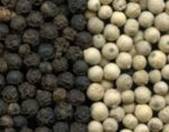Seasoning
Use a light hand when seasoning with spices and herbs. Your goal is to compliment your dish without crowding out the flavour of the food. Remember, it’s usually impossible to “un-spice” a dish!
Long-cooking
For long-cooking dishes, add herbs and spices an hour or less before serving. Cooking spices for too long may result in overly strong flavours.

Dried herbs
Finely crush dried herbs before adding to your dish after measuring. Black pepper, garlic powder, salt and cayenne pepper are excellent “after cooking” seasonings. Allow guests to season dishes with these spices at the table.

Cinnamon
Cinnamon, nutmeg and cloves have a special affinity for sweet dishes.

Oil
Get into the habit of measuring the oil you use while you cook, rather than just pouring it out of the bottle. It will be much easier to moderate the amount you use.

Non-stick
Use non-stick cookware so that you don’t have to use as much if any, fat. When sautéing, use a small amount of olive oil instead of butter.

Fat-free
To make fat-free broth, chill your meat or chicken broth. The fat will rise to the top, and you can remove it before using the broth.

Vegetables
Many vegetables and fruits, including potatoes and apples,
retain many of their nutrients in their skin. So when possible, leave the skin on your fruits and vegetables and cook them whole.

Vitamin C
Vitamin C is destroyed quickly in cooking – so cook your vegetables with Vitamin C in the smallest amount of water possible and for a short amount of time.

Tongs
Whenever barbecuing, use tongs to turn the meat. A fork should never be used. For it will punch holes in the flesh and allow the natural juices to escape and loose flavour and become chewy.



